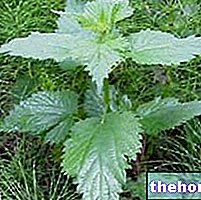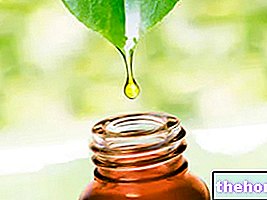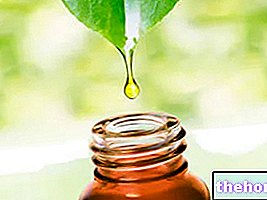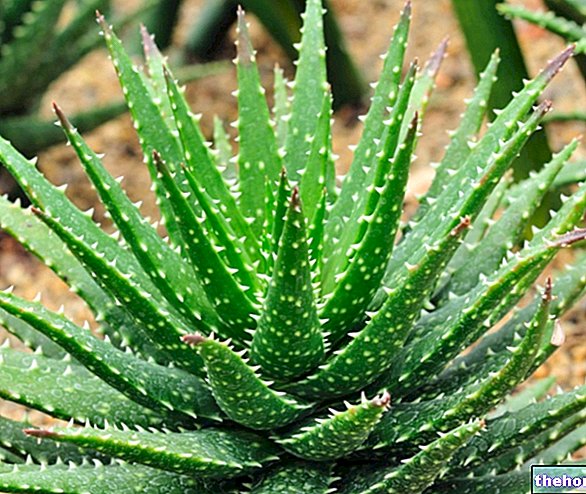Dyspepsia
A very felt and rather widespread disorder is represented by poor digestion, technically called dyspepsia: often poor digestion is accompanied by heartburn, belching, acid regurgitation, constipation, drowsiness, nausea and slowing of gastric and pancreatic functions.
Causes
The underlying causes of dyspeptic disorders can be of various kinds: in fact, they range from incorrect, excessive and unbalanced nutrition, to infections of Helicobacter pilory, from stress to the abuse of non-steroidal anti-inflammatory drugs (NSAIDs) with a gastrically damaging effect.

Natural remedies
When the cause of indigestion is not an organic pathology, natural remedies are a valid and effective help.
Drugs such as gentian, artichoke, ginger, licorice, chamomile, mint and bitter drugs in general (rhubarb, boldo, fennel, cumin, dandelion, chicory, etc.) have the ability to tone the functions of the organs involved in the early stages of digestion: they favor gastric and salivary secretion, help liver and pancreatic functions, and confer gastric tone.
A correct lifestyle, a light and regular diet without excesses is recommended; the way you are used to eating should also be correct as, if you tend to eat quickly, you swallow air which creates bloating and abdominal discomfort.
Herbal medicine is equipped with natural formulations that help the body to carry out a correct digestion: in this article we will analyze two valid products to be considered as a model to combat dyspepsia. We will examine a first natural remedy formulated in the form of chewable tablets based on apple, chicory, ginger, licorice and gentian; then a classic digestive herbal tea with mint, gentian, anise, caraway, verbena, yarrow and licorice. Both natural remedies perform the same action, aimed at improving digestive and gastric function: the tablets are more practical for those people who do not have much time available, while the herbal tea, in addition to being a help for digestion, is more suitable for those who feel the need to relax.
Natural chewable tablets
The chewable tablets are very practical, because they melt slowly in the mouth without the need for preparation, as is the case with herbal teas and infusions. It is recommended to take the product twice a day after main meals.
- Apple (apple juice extract): it is included in an anti-dyspepsia product due to the presence of organic acids - malic, tartaric, succinic and citric - which seem to exert a positive tropism on the basal metabolism, improving its expression and promoting its production of digestive juices.
- Chicory (Cichorium intybus): despite its very bitter taste, made by the presence of inulin, chicory is able to stimulate the appetite (taken before meals) and promote digestion, regulating intestinal, liver and kidney functions; in fact, it promotes diuresis and the production of bile. Its purifying and detoxifying effect is also known.
- Ginger (Zingiber officinalis): some active ingredients with digestive activity are obtained from the ginger root. Not surprisingly, ginger, commonly called ginger, is widely used for the manufacture of aperitifs and liqueurs. Furthermore, ginger is considered for its carminative properties, which allow to produce less intestinal gas and decrease the fermentation process. It should be remembered, however, that ginger is not able to adsorb intestinal gas, since this function is attributed only to clay and coal.
- Licorice (Glycyrrhiza glabra): the saponins contained exhibit gastroprotective activity, while the flavonoids exhibit eupeptic activity. Licorice is configured as an aromatic and stomachic drug.
- Gentian (Gentian lutea) could not miss the gentian, digestive, tonic and eupeptic drug par excellence, thanks to the iridoids contained, precisely gentiopicrin, amarogentina and genziopicroside.
This natural remedy is not recommended for diabetics (due to the presence of apple extract) and for those suffering from heartburn (because it could potentiate heartburn). It should not be taken in conjunction with NSAIDs, because being gastric they could aggravate the problem .
Digestive herbal tea
Mint and gentian are drugs recommended to alleviate ailments related to poor digestion; particular the presence of anise and caraway, while verbena and yarrow are less known plants in a herbal product of this type. Licorice is a “corrigens” element, therefore a corrector of flavor.
- Mint (Mentha x piperita): represents an "excellent drug with tonic-eupeptic properties thanks to menthol, the active ingredient that characterizes the phytocomplex: it relaxes the muscular tissues of the stomach. It is spasmolytic and is widely used for gastrointestinal disorders. Mint is not recommended in subjects with gastric ulcers because menthol stimulates the production of acidic juices, enhancing the pre-existing problem.
- Gentian (Gentian lutea), as already analyzed, gentian boasts tonic, eupeptic and digestive properties.
- Anise (Pimpinella anisum): carminative drug capable of decreasing abdominal swelling thanks to molecules that limit gastric fermentation caused by the intestinal flora. The phytocomplex is mainly characterized by anethole, a very volatile terpenoid molecule.
- Caraway (Carum carvi): drug characterized by terpenes and flavonoids, it exerts a "digestive action in synergy with anise": it improves liver, intestinal and pancreatic activity, decreases the disorders deriving from a sluggish metabolism, soothes abdominal swelling.
- Verbena (Lippia citriodora) is a medicinal plant consisting of verbenin, verbanaloside, verbenone, tannins and other constituents that give the product highly appreciated organoleptic properties (drug "corrigens", together with licorice). If the herbal tea based on verbena is taken before meals, the digestive function is favored: in this regard it is also used in remedies against gastralgia (stomach pain).
- Yarrow (Achilea millefolium): among the active ingredients that make up the phytocomplex are mentioned lactonic sesquiterpenes (achillina, achillicina), flavonoids (apigenin, quercetin), alkaloids, tannins and organic acids; The essential oil is rich in pinene, bornile, camphor and eugenol. For internal use, yarrow performs bitter-tonic and choleretic activities and is also used for gastro-intestinal disorders such as gastritis, gastric spasms and digestive difficulties.
- Licorice (Glycyrrhiza glabra): in this case, licorice is a “corrigens” drug because it corrects the organoleptic properties of the herbal tea, consisting mainly of bitter drugs.
While considering it "natural", this herbal remedy has some contraindications: for this reason, before buying any "self-medication" product it would be useful to talk to your doctor: in fact, the herbal tea and the tablets analyzed are not recommended for those who have biliary problems, as there are drugs that act on the liver by stimulating the gallbladder; consequently they could cause colic in the presence of stones. Furthermore, if these natural remedies are adopted by subjects who take tricyclic antidepressants, because they suffer from depression, the contrast between the active ingredients could lead to insomnia. Finally, in the presence of chronic dyspepsia, natural products against poor digestion generally fail to bring a substantial benefit.
Ancient remedies
Although there is no scientific basis, popular tradition has always managed to express its wisdom, with or without reason. Even in the case of difficult digestion, tradition provides for the use of some plants such as mallow, lemon balm and sage. Furthermore, the habit of eating garlic seemed to favor digestion, as well as cooked onion, which due to its content of water promotes diuresis and assists correct kidney function. Even celery seemed to represent a valid aid for digestion: so much "is that a popular saying is remembered"if the farmer knew the value of celery, then he would fill his entire garden with it". Besides being considered an aphrodisiac plant (properties still doubtful) and useful for the treatment of open wounds, it was also used to promote digestion, relieve abdominal cramps and was considered an excellent diuretic. Finally, horseradish was used for its stimulating properties on the production of saliva, gastric juices, consequently it was an excellent natural aid for digestion.
Other articles on "Indigestion: Natural Remedies"
- Dyspepsia - Medicines to Treat Poor Digestion
- Bad Digestion - Dyspepsia
- Diet and Poor Digestion dyspepsia
- Poor digestion and behavioral habits




























